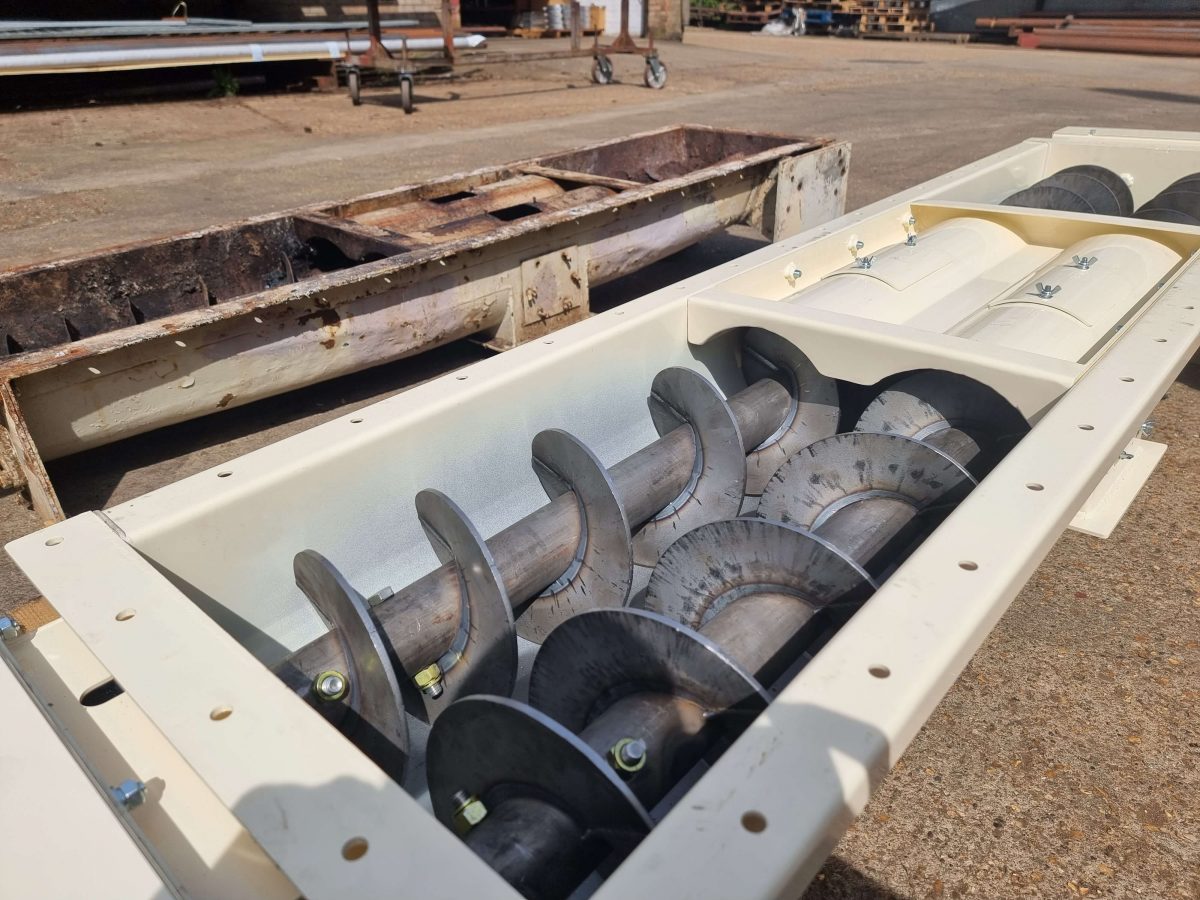Screw conveyors are vital equipment in many industrial applications. They can move bulk products and materials conveniently across factory grounds and even over awkward heights. In addition, the device enables better control and organization of material flow to keep the product safe and in good condition.
Screw conveyors are suited to a wide range of industries. They are often used in pharmaceuticals, animal feed, grain, construction and much more. What’s more, they have been used since 250 BC!
There is no denying screw conveyors are versatile and valuable for a great variety of businesses. But how do you ensure a screw conveyor is suitable for industrial applications and meets your requirements?
In this article, we will cover what to look out for.
Identify the Best Type of Screw Conveyor for Your Applications
There are many different types of screw conveyors. While they all fulfil similar purposes, you must know where and how your screw conveyor will be used. This will allow you to choose the correct setup for your device.
Here are the most common types of screw conveyors you’ll be able to choose from:
- Horizontal screw conveyor: This conveyor moves the product along a horizontal path. It’s the simplest type of conveyor and suits applications in which materials need to be moved across the factory floor from one station to the next consistently. They are cost-effective alternatives to belt conveyors and work well for free-flowing and non-flowing materials alike.
- Inclined screw conveyor: This screw conveyor moves the product at an incline of up to 45 degrees. They are otherwise functionally the same as horizontal conveyors but require more torque to pull the material up. Because material could fall back down at this angle, an inclined screw conveyor must be designed with the exact product it will be handling in mind. The greater the incline, the less efficient these machines become. Higher inclines require higher speeds and, therefore, more energy.
- Shaftless screw conveyors: These conveyors come without a shaft. They suit applications in which materials need to flow through the conveyor as freely as possible. This makes shaftless conveyors more flexible and efficient for a range of products. It avoids clogging and can handle materials conventional screw conveyors can’t. For example, products with high moisture or irregularly shaped products. Shaftless screw conveyors are commonly found in chemical, wastewater, mining, and food industries
- Vertical screw conveyor: Vertical screw conveyors are designed to move products up vertically. Vertical conveyors work best for semi-fluid materials and must be designed with the exact material in mind. They’re usually paired with feeders to ensure the product can be expelled at a uniform volume and pacing. This conveyor type is most commonly used in industries like wood production, wastewater, chemical and food.
Material Requirements for Industrial Applications
Another important criterion to keep in mind when choosing a suitable screw conveyor for industrial applications is the material of the screw and housing itself. Suppose your application involves an abrasive product, for example. In that case, you need to ensure that your screw conveyor is constructed from non-abrasive components.
Some applications require systems that can handle toxic or explosive materials. Therefore, it’s essential to speak to your provider when choosing your screw conveyor to let them know all your specifications.
Capacity for Industrial Applications
Screw conveyors for large industrial applications need to handle high volumes of bulk products each hour. Calculate this volume by identifying the ideal cubic feet per hour. Your provider will need this number to determine:
- the best loading percentage for the conveyor
- the right screw diameter
- the conveyor drive RPM.
External Requirements
There may also be other external factors that are vital to your application and should impact your choice. For example:
- The distance the screw conveyor must cover
- whether there will be any elevation
- Whether product needs to be airtight and safe from contamination
- Does your conveyor need to be able to run at variable speeds?
- Will it be part of a more extensive controls system?
- Will it need sensors to automatically stop and restart product flow?
The Wright Dowson Group is the most trusted provider of screw conveyors in the UK. We deliver high-quality devices for a variety of industry applications. Our engineers can work to your specifications to create a screw conveyor that suits your precise needs. Get in touch today for a quote, technical advice or any questions you want answering!









